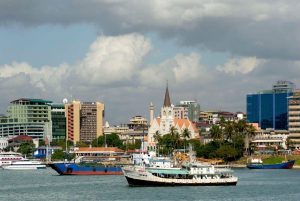The Kenya Association of Travel Agents (KATA) has welcomed the move by the government to nationalise Kenya Airways (KQ).
KATA Chief Executive Ms. Agnes Mucuha said that the national carrier has a huge potential to turn around, and urged that their management should focus on extending themselves to their customers, by maximizing the customer’s benefits while taking responsibility for their outcomes.
The Kenyan parliament voted in July, 2019 for the nationalisation of KQ. The airline, which was privatised 23 years ago sunk into debt after incurring losses over the years. The government owns 48.9 percent while Air France- KLM owns 7.8 percent stake of the airline.
“The world today operates in a connection economy, and in the absence of Kenya Airways, travel would become very expensive due to decreased load capacity and increased hub operating costs, hindering the attractiveness of Kenya as a regional aviation hub. Consequently, the Nairobi hub would experience decreased passenger demand for travel, and in the long-run the Nairobi hub would cease being attractive in the region,” Ms. Mucuha stated.
As a strategic partner, she added, KATA welcomed the news of the planned nationalisation of the carrier because Kenya Airways contributes positively to Kenya’s economy and provides job opportunities for many. Most importantly it has created a market place for the Travel Agents to promote Kenya Airways products and services contributing to the successful growth of their Travel Agencies.
“As Kenya Association of Travel Agents (KATA), we recognize that it requires a different mindset, to turnaround Kenya Airways, and we reaffirm our support to working together, towards helping Kenya Airways leave a better legacy for our future Travel generations.” She further said.
Parliament voted to approve the recommendations by the Transport Committee chaired by Pokot South Legislator David Pkosing to have a holding company with four subsidiaries.
These are the Jomo Kenyatta International Airport (JKIA), The Kenya Airports Authority (KAA), Kenya Airways and an aviation college. The holding company will be exempt from tax for a set period of time.
Many other governments worldwide faced with almost similar situations have stepped in to revive and save their ailing carriers. This is because aviation is a global industry and a key aspect in the generation of revenue for a country.
These airlines have received support from their state governments through a well laid out strategy and funds injected to ensure the revival and sustainable survival of struggling airlines.
For instance, in our neighbouring country Uganda, it took the government’s intervention to bring back the Uganda Airlines after it faced liquidation and closed shop in 2001.
Several attempts to revive the airline through private sector firms failed. However, in March, 2019, the Ugandan Parliament put in motion a request for a supplementary budget of Ush 280 billion to buy new planes, bringing the carrier back in business after 20 years.
In South Africa, the national carrier also had its fair share of challenges running the airline which led to slow economic growth and lack of revenue for the country.
To alleviate the situation, the government issued two billion Rand (USD 136 million) from existing lenders ahead of the business rescue, and another 2 billion rand through the country’s national treasury. The airline was also put under business rescue to avoid being liquidated by creditors.
In Pakistan, the Pakistan International Airlines (PIA) submitted a 5-year strategic business plan for 2019- 2023. According to Dawn News, the airline’s CEO Air Marshal Arshad Malik said they were developing a plan on cost cutting and revenue generation for the revival of the national carrier.



